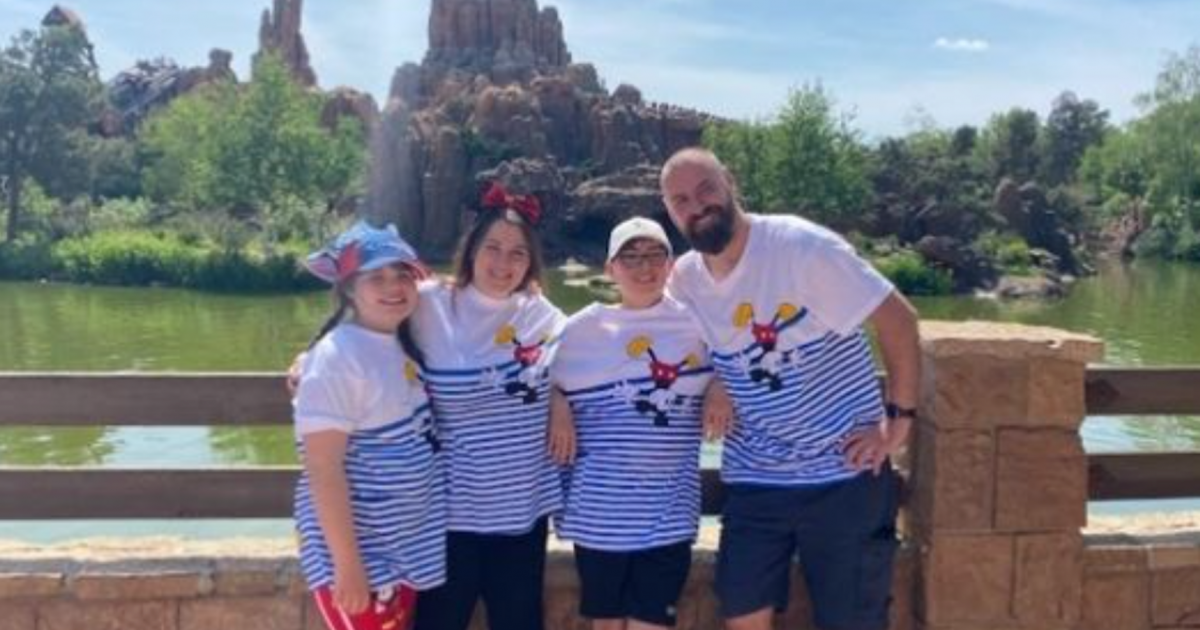Coping with a Serious Cancer Diagnosis
- Wife and mother-of-two Linsey Farrington, 37, woke up last month with her stomach suddenly looking swollen, as if she were pregnant. Little did she know, she would find out weeks later that she faced a serious battle with cancer.
- At first, doctors were unable to pinpoint the source of the primary cancer, as it was far from a typical case. Eventually, they determined it was stage 4 stomach cancer that had spread to the spine.
- Stomach cancer occurs when an abnormal growth of cells begins in the stomach and becomes cancerous. Treatment options for this disease include surgery, medications, radiation and chemotherapy.
- If the cancer is advanced, even if doctors give you a timeline, it’s important to never give up hope, as doctors can sometimes be wrong, medical “miracles” can happen, and there are are more exciting advancements happening in medicine than ever before.
“I couldn’t move, I couldn’t walk, I was just vomiting,” Lindsey, who is from Chesire, England, told the Liverpool Echo. “It came out the blue. I woke up and it was enormous.”
Read More Linsey immediately went to the emergency room and was told it would be a nine-hour wait. They set her up for a scan three weeks later.
Linsey immediately went to the emergency room and was told it would be a nine-hour wait. They set her up for a scan three weeks later.They finally did a CT scan and saw some cancerous looking cells in her abdominal wall, so they removed the fluid via surgery. Shockingly, it turned out to be 12 liters of fluid. “They scanned me and found all this fluid in my stomach,” Linsey said.
Doctors then performed a biopsy, “and from then it was a whirlwind five weeks,” as Lindsey described of the terrifying diagnosis process.
The fluid in her stomach then built up again, and she had to have another 10 liters drained. “They then fitted me with a permanent drain which was horrendous and I lost another two, three liters then. But the fluid is cancer, so it is spreading. So that fluid is what is making it spread,” she added of the living nightmare she has been going through.
To make matters worse, doctors kept going back and forth over what type of cancer she had. They thought it was potentially ovarian, which is cancer of the ovaries, then mesothelioma, which occurs in the lining of the lungs or the abdomen.
Linsey had secondary cancer in her omentumwhich is in her abdomenand in her bones, but they couldn’t identify the primary cancer. Her medical team explained that they could not find the primary cancer.
Finally, they diagnosed the Linsey with stage four metastatic stomach cancer. which had spread to her spine.
“They found primary in my stomach but they said it was really rare the way it’s presenting itself,” she said. “That’s why it’s not being picked up on any blood tests or anything because it is in the tissue of my stomach.”
At this point, it is looking like Linsey has a hard road ahead, according to doctors. However, the devastating diagnosis has not stopped Linsey and her family from searching for alternative treatments to help prolong her time living.
‘You Have to Find Something To Hold On To’
Like most cancer patients who are parents, the worst part of it was telling her kids, and helping them understand. No matter what her fate is, Lindsey is trying to “live her best life” and live in the moment each and every day with her family. She said the family recently went to Disney and are making “every moment count.”
When Cancer Runs in the Family: The Importance of Genetic Testing
It’s always important to never give up hope. Doctors have been wrong before. Miracles can happen. There are new clinical trials almost every day.
“Because I feel so well, that mentality while I feel well is we’re doing everything we can and making as many memories as we reasonably can,” Lindsey said, determined.
Understanding Stomach Cancer & Its Symptoms
Stomach cancer occurs when an abnormal growth of cells begins in the stomach and becomes cancerous. Treatment options for this disease include surgery, medications, radiation and chemotherapy.
The American Cancer Society (ACS) predicted there would be approximately 26,560 new cases of stomach cancer diagnosed in the U.S. this past year (16,160 in men and 10,400 in women). Stomach cancer typically affects older people, with the average age of diagnosis being 68. Nearly 6 of every 10 people diagnosed with stomach cancer each year are 65 or older. Symptoms of this disease may include:
- Difficulty swallowing
- Feeling bloated after eating
- Feeling full after eating small amounts of food
- Heartburn
- Indigestion
- Nausea
- Stomach pain
- Unintentional weight lossVomiting
If you are experiencing any of these symptoms, or sudden, extreme belly bloat as with Lindsey’s case, be sure to go to a doctor or hospitaldepending on the severity of symptomsto find out the cause.
Learn more about SurvivorNet's rigorous medical review process.

